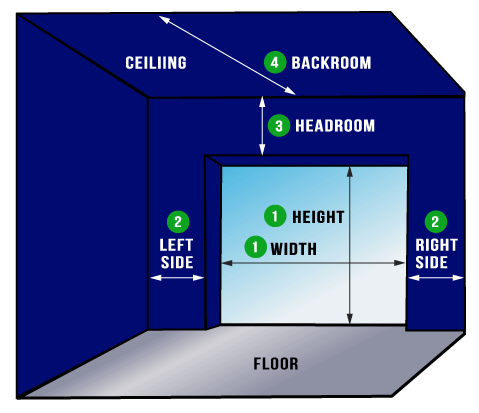When choosing a new garage door many factors come into play. From design and style to color and material, there are many options out there to customize your garage door. Another factor you should consider is choosing between insulated and non-insulated garage doors.
Before making this decision, it is important to understand the pros and cons of each and what they can offer.
Differences in Insulated and Non-Insulated Garage Door Construction
Insulated garage doors can be referred to as double-layer or triple-layer because they are constructed with layers of door material along with alternating layers of either polystyrene sheet insulation or thicker polyurethane insulation. Non-insulated doors are constructed with just one sheet of material, regardless of the material that you choose.
With the added layers and thickness, insulated doors tend to be more durable and can withstand more wear and tear than non-insulated doors and will not need to be replaced as often as non-insulated doors.
Price Differences Between Insulated and Non-Insulated Doors
 With many products on the market, you will get the quality you pay for. Non-insulated garage doors may be cheaper up front but will need to be replaced more often, costing you more money in the long run.
With many products on the market, you will get the quality you pay for. Non-insulated garage doors may be cheaper up front but will need to be replaced more often, costing you more money in the long run.
Insulated doors are made to be durable and of a higher quality than single layer doors, so you can expect to pay roughly a couple hundred dollars more than you would for a non-insulated door. Although they come with a higher price tag, insulated doors are an investment that will last longer, saving on future replacement costs.
Style and Energy-Saving Benefits of Insulated Garage Doors
The garage door is a major aspect of a home’s exterior so it important to consider which style offers a better look and can also help save on home energy costs. Non-insulated doors are thinner and can present a cheaper, less sturdy style that can take away from the look of your home. Insulated doors appear sturdier and can help add to the style of your home rather than take away from it.
Insulated doors reduce the hot or cold air from coming into the garage, keeping the garage climate comfortable and helping to lower your energy bill, especially if you have an attached garage.
Choosing the Right Insulation Thickness
Choosing the right measure of insulation thickness, also known as the R-value, is also important. The standard home has an R-value of roughly 11. The higher the R-value, the more effective the insulation will be, so you want to be sure the garage door meets or excess the R-value of the walls around it. For an attached garage or if you live in a colder climate, you will want to consider a garage door with a higher R-value for maximum effectiveness.
At Garage Door Discounters, we can help you select the right garage door to suit your needs. Contact us today to learn more about our wide selection of insulated garage doors.

